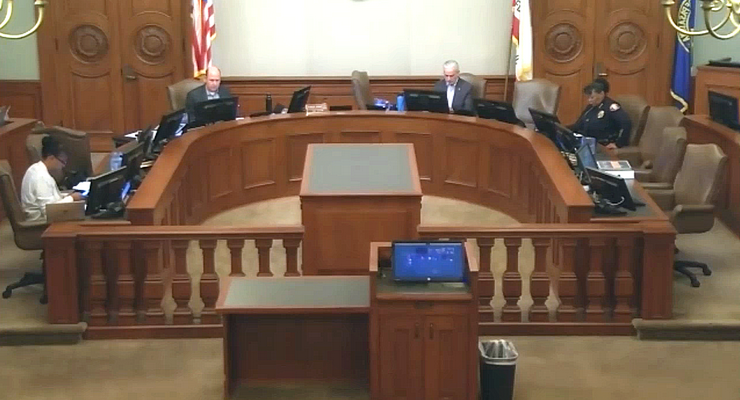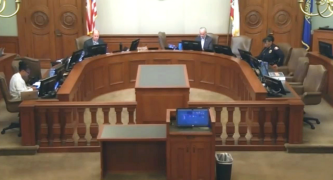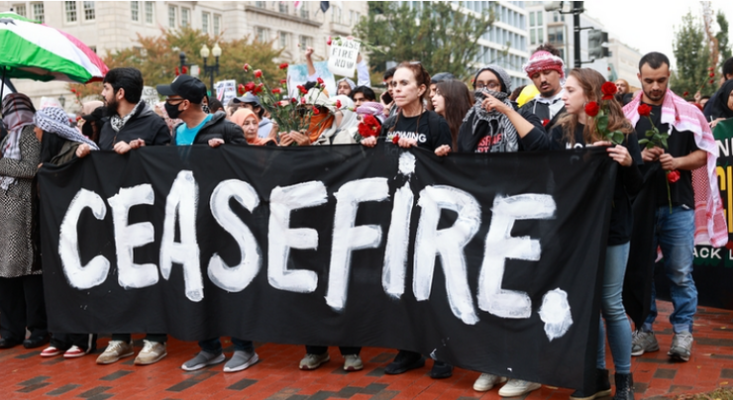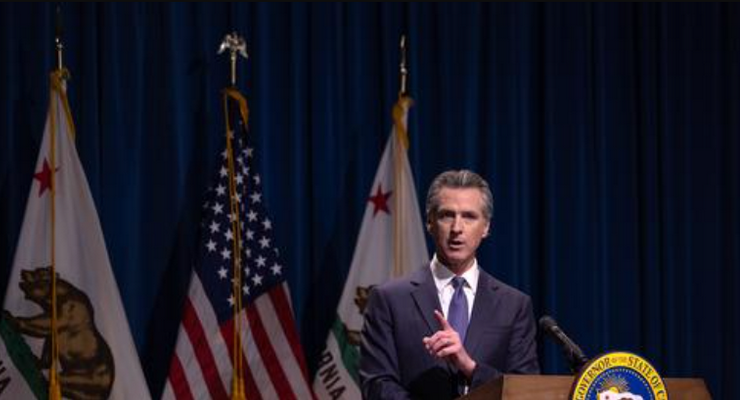
No answers or specific directions emerged from Wednesday’s City Council Public Safety Committee meeting in regard to possible civilian oversight and other reforms of the Pasadena Police Department. But the questions that will be asked in the coming weeks began to come into some sharper focus.
With the committee targeting the full council’s Aug. 10 meeting as the date by which a proposed model for increased police oversight will get a vote, committee members directed the city attorney’s office and City Manager Steve Mermell to clarify – in the words of Mayor Terry Tornek – “the metes and bounds of what kind of citizen oversight is available within the context of state law and our own City Charter.’’
That information would presumably be in the hands of committee members ahead of the panel’s next scheduled meeting on July 8.
“If they can kind of narrow this discussion down and tell us what we’ve got in place and what we can put in place without going back for the long process of amending the City Charter, we can move fairly quickly in terms of putting together a proposal,’’ Tornek said.
A recommendation by the committee – composed of Tornek; Council Member John J. Kennedy, the chairman; Vice Mayor Tyron Hampton; and Council Member Steve Madison – would precede any vote by the full council on a matter that has become a front-burner issue in the city, as elsewhere in the nation.
Like communities all across the country, Pasadena has heard calls for police reform in the wake of George Floyd’s death in Minneapolis and the protests that followed.
Tornek said he has received “hundreds and hundreds” of comments and suggestions about police reform in the city. Other committee members said the same. Now it becomes a matter of sorting through the myriad possibilities.
“This is a very complicated and intricate matter, and it deserves close scrutiny,’’ the mayor said.
“One of the things that I have concluded in terms of me being able to respond to some of the suggestions and recommendations made by our residents, is that I’m having some difficulty understanding the metes and bounds of what kind of citizen oversight is available within the context of state law and our own City Charter.
“For example, one of the things that I’ve learned is that, depending on who the appointing authority might be for such an oversight commission, that may impact what role it can play without going back to the voters for an amendment to the City Charter, which would be obviously a time-consuming process.
“It may come to that, but I’d like to understand what the metes and bounds are of those possibilities.’’
Tornek also pointed to a pair of review committees already in place – “a Disciplinary Review Board and a Use of Force Review Board’’ – that have been dormant for some years, and what role they might play in any reform proposal.
“I’d like to understand what the role of those constructs might be and how they might be employed or rejuvenated to begin to respond to some of the concerns that residents may have,’’ he said.
Meanwhile, from all those “hundreds and hundreds” of suggestions that he and other committee members have received in recent weeks, Tornek cited a community “Bill of Rights” co-authored by the National Day Laborer Organizing Network (NDLON) and the Pasadena NAACP as being particularly “formidable and thorough” – though he did not take a position on whether that plan would necessarily be the committee’s road map.
The “Bill of Rights” calls for sweeping changes in law enforcement and a focus on racially unbiased policing. Among its specific points, it also demands: that 20 percent of the police budget — more than $16 million — be diverted to social services; that Pasadena reduce the number of officers through attrition; and that the department reform use-of-force policies, end racial profiling and increase local hiring.
Other suggestions that committee members have heard include a commission of residents, a full-time independent auditor with subpoena power and increased transparency regarding police misconduct.
Tornek said the committee needs the city attorney and city manager to research the various possibilities and parameters at its disposal in order to have “a more directed discussion (and) a better-informed discussion” on July 8.
“I think … there’s been kind of a bifurcation in reviewing the past information provided to us in the citizen oversight function and an auditor function,” he said. “For example, in the proposal that NDLON and the NAACP gave us, they’ve got both. I think that they’re very different kinds of functions, and I think they would provide very different roles.’’
Tornek added: “I think it would be useful, certainly for the committee but also for the public, to have more information very quickly from staff and the city attorney’s office on those issues – of the limits imposed by state and local ordinance and the charter, the role of those existing bodies and how they might play into this, and the interconnection between the auditor function and the citizen oversight function,’’ Tornek said.
Hampton, meanwhile, said, “We have to have oversight that actually has some teeth, that actually can hold people accountable’’ – and that increased transparency regarding officers’ complaint histories should be one key.
“I think the biggest concern is … the residents want to know, how to you hold a police officer accountable who has actually done some sort of wrong?’’ Hampton said.
“People want to understand what is that process? If I file a complaint, what happens at the end of the day with my complaint? Why is that officer still on the street? Why have two people filed a complaint similar to the complaint that I filed, which we would never ever see because we don’t get that information?
“Some of these officers may have had complaints on them, but we as City Council members never ever see that. … They talk about protection of privacy, I don’t see how that’s a privacy issue, because if I’ve been arrested in my lifetime, each and every one of you guys can figure out that I’ve been arrested. So if I’m a police officer, if I’ve broken policy, I feel like the public should also have that courtesy of knowing that information.
“I feel like the process is broken for that.’’
Madison was another committee member who welcomed the additional time for further study.
He said he has heard “the community and its frustration and desire’’ in regard to police reform, but is concerned “that we not get out over our skis and move too quickly and make a mistake. And I think we’ve got to hear from our (police) chief (John Perez) … on all of this.’’
“My sense is we have a much better police department than many if not all other agencies, and that we are already doing certain things that other agencies are just now getting around to thinking about,’’ Madison said.
“We certainly shouldn’t have reform for reform’s sake, but we should make some thoughtful, balanced decisions based on the input of all of the stakeholders.’’














 6 comments
6 comments


